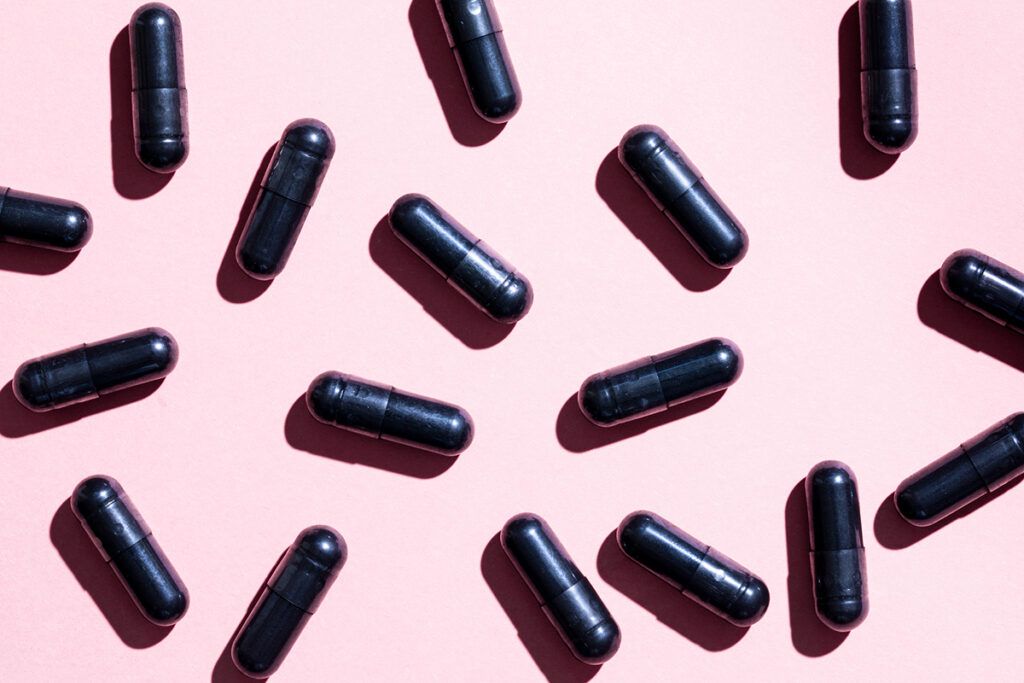Activated charcoal can bind to toxins in your stomach and prevent your body from absorbing them. This is because the human digestive system cannot absorb charcoal.
After absorbing toxins, the activated charcoal typically proceeds through the gastrointestinal (GI) tract and leaves the body in your stools.
Activated charcoal can have many uses and benefits, although more research is necessary to confirm them. This article will look at some of the uses of activated charcoal in health and cosmetic products.
Activate charcoal benefits

Doctors often use activated charcoal when a person has ingested a poisonous substance to decontaminate the gastrointestinal tract.
This is because activated charcoal can absorb toxins, which can help prevent your stomach from absorbing poison and other dangerous substances.
Your body cannot absorb the activated charcoal, so it will move through your GI tract and exit your body in your feces, along with the toxins that have bonded to it.
Thanks to its filtering properties, activated charcoal may also help treat and manage other health conditions, including kidney disease and other conditions related to the GI tract.
However, more research is necessary to confirm the overall effects of activated charcoal.
How it can help
Activated charcoal can help manage and treat some health conditions and has various cosmetic uses.
Kidneys
If you have stage 3 or stage 4 kidney disease, you may be prone to high phosphate levels in your blood. Taking oral activated charcoal may help reduce the onset of increased phosphates because it can collect the excess and flush it from your body.
Activated charcoal may also help filter other undigested toxins and relieve kidney strain by reducing the number of waste products they must filter.
More research is necessary to confirm the recommended dosage and how long you should use the activated charcoal. It is best to discuss all options with a doctor or healthcare professional to establish the right treatment plan for you.
Intestinal gas and diarrhea
Activated charcoal may help improve the formation of intestinal gas and manage diarrhea.
A 2017 randomized trial found that people taking a capsule containing 140 milligrams (mg) of activated charcoal and 45 mg of simethicone for 10 days noted a significant reduction of abdominal pain and bloating without any side effects.
A 2018 study reported that activated charcoal might prevent the onset of diarrhea caused by bacterial infections or as a side effect of certain medications. This is due to its ability to prevent and expel certain toxins that could sit in your GI tract and cause diarrhea.
Skin infections and skin care
Some products contain activated charcoal, including soap, shampoo, and facial cleansers. They may help treat skin conditions like acne and dandruff.
Activated charcoal may also help remove toxins and bacteria from the skin and makeup product chemicals from the skin’s surface. However, more scientific evidence is necessary to confirm its qualities for treating skin conditions.
Oral care
Activated charcoal is in many oral care products, including toothpaste. A 2021 study found that toothpaste containing charcoal may help whiten teeth thanks to its abrasive properties.
Charcoal may also help remove bacteria and reduce bad odors from the mouth.
Water filtration
A 2020 research review states that activated charcoal can successfully filter and purify water. Purifying water can reduce the number of toxins and particles in the water you drink, ultimately helping prevent the kidneys from filtering larger quantities of waste.
Deodorant
A 2020 study found that activated charcoal can absorb body odors more effectively than zinc oxide. This is one of the reasons many deodorants now contain activated charcoal in their composition.
Prevention of obesity and insulin resistance
A 2022 study found acidic activated charcoal can help prevent obesity in mice fed with a high fat diet. It also significantly increased their insulin resistance.
However, more research is necessary to evaluate its efficacy on humans.
If you need help covering the cost of medications, the free Optum Perks Discount Card could help you save up to 80% on prescription drugs. Follow the links on drug names for savings on that medication, or search for a specific drug here.
